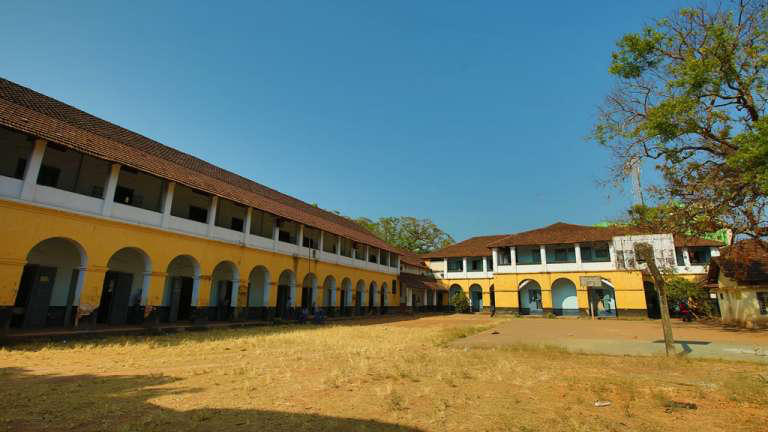
Welcome to a Lesser-Known Legacy
While most travelers to India expect to find echoes of British, Dutch, or Portuguese influence, few realize that **northern Kerala holds a unique and profound chapter of German heritage. From 18th-century poets to 19th-century reformers and educators, Germany?s legacy in Kerala is not one of conquest?but of compassion, creativity, and culture.
City Heritage proudly invites curious minds and German travelers to explore ?Spuren??footprints?of this quiet yet powerful story through carefully curated tours, storytelling walks, and meaningful local interactions.
A German Legacy Rooted in Purpose, Not Power
The arrival of German missionaries in Kerala during the early 1800s wasn?t about empire. Instead, it was a cultural and intellectual mission. Driven by the Basel Mission, German Jesuits and Protestants brought with them the tools of education, language development, printing, and social welfare.
They helped shape what Kerala is proud of today: its high literacy rate, progressive social structure, and linguistic pride.
The Vision of Dr. Hermann Gundert
No discussion of German heritage in Kerala is complete without mentioning **Dr. Hermann Gundert (1814?1893)**, one of the most celebrated linguists and missionaries in Indian history.
Residing in Thalassery from 1839 to 1859, Gundert compiled the first Malayalam-English dictionary, wrote the **first Malayalam grammar book, and published the region?s first Malayalam newspapers?Rajyasamacharam and Paschimodayam. His bungalow today stands as the Gundert Museum, a testimony to how one man changed the course of a language.
The Transformative Role of the Basel Mission
Equally significant is the role of the Basel Mission, a German-Swiss Protestant initiative that set the foundation for Kerala?s educational and industrial reform.
Arriving in Calicut in 1834, the Mission founded schools, churches, printing presses, and industrial units?including tile factories and weaving centers?which empowered local economies and skilled labor. Their emphasis on equality, vocational training, and social justice created lasting change, especially among marginalized communities.
The Mission?s schools introduced modern education in vernacular and English, a revolutionary move for the time. Their printing presses spread Malayalam literacy, making knowledge accessible to the masses and helping foster a socially aware generation.
Other Notable Figures: Poets, Reformers, and Saints
Ernst Hanxleden (Arnos Pathiri): A Jesuit poet who composed *Puthen Pana*, blending Malayalam literary forms with Christian theology.
Volbrecht Nagel: Founder of the Rehoboth Orphanage in Thrissur, whose work in women's and child welfare still continues.
Brother Fortunatus Thanheuser: A post-independence missionary in Kattappana, known for founding **Pratheeksha Bhawan**, a home for the aged and the destitute. His canonization process has already begun.
Curated German Heritage Trails by City Heritage
Join City Heritage?s German Footprints Tour?a thoughtfully crafted journey through temples of knowledge, poetic echoes, and quiet revolutions. Below are some of the key sites you can explore with us:
Gundert Museum ? Thalassery, Kannur
Former residence of Gundert. Colonial architecture, rare books, and museum exhibits.
Open daily; entry fee- 50. Easily accessible from Thalassery Railway Station.
Basel Mission School ? Palakkad
A living example of German-style education in Kerala, established in 1859.
Free entry during school hours; permission recommended.
Kuravilangad Church ? Kottayam
Home to historic German bells from 1911, blending spiritual heritage with cultural diplomacy.
Open daily; road access from Kottayam.
Veloor Church ? Thrissur
Linked to Hanxleden. Houses his manuscripts and Indo-European architecture.
Open daily; prior permission advised.
Rehoboth Orphanage ? Nellikunnu, Thrissur
Founded by Volbrecht Nagel in 1905; still operates as a social welfare center.
Visits possible with advance permission.
St. George Forane Church ? Kattappana, Idukki
Site of Brother Thanheuser?s work and tomb. A serene pilgrimage location.
Entry free; check hours before visiting.
Plan Your Visit with Ease
Best Season to Travel: Through out the year
Duration: 6-14 days for the full heritage trail
Local Etiquette: Dress modestly, especially in religious or institutional spaces
Access: All sites are reachable by road; nearest airports include Kannur, Kochi, and Kozhikode
City Heritage arranges custom itineraries, storyteller-led visits, and permission access where needed, ensuring a seamless experience from arrival to departure.
Why This Trail Matters
German contributions in Kerala go beyond nostalgia. They represent a shared vision of progress?one where cultures collaborate rather than conquer. By exploring this trail, you not only connect with Kerala?s heritage, but also rediscover Germany?s role in nurturing a society where language, learning, and compassion prevail.
So whether you?re tracing your roots, curious about intercultural histories, or simply seeking an offbeat, deeply human experience?this trail is your invitation.
Join Us at City Heritage
Let us guide you on this exceptional journey. Walk through the pages of shared history. Listen to the unheard stories. Feel the pulse of a legacy shaped by compassion and vision.Book your "German Footprints in Kerala" tour now at [www.cityheritage.in](http://www.cityheritage.in)
Contact us for bespoke travel planning, group tours, or cultural collaborations.
© Copyright 2025 City Heritage. All rights reserved.
Website designed by TNM Online Solutions.
If you have any enquiry, feel free to ask, and we'll provide you with a prompt and concise response.